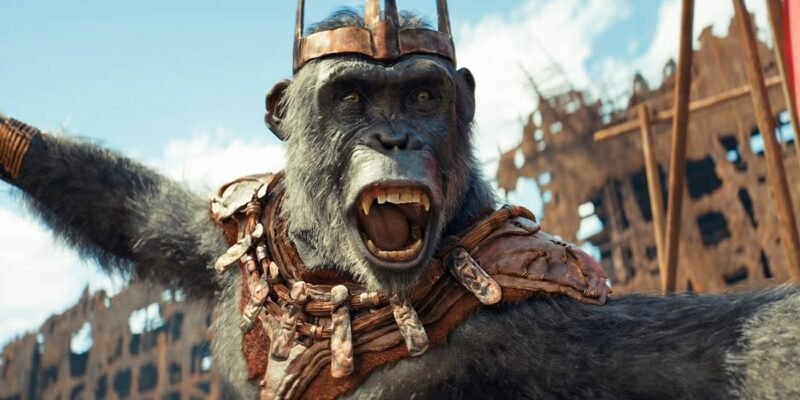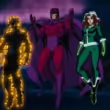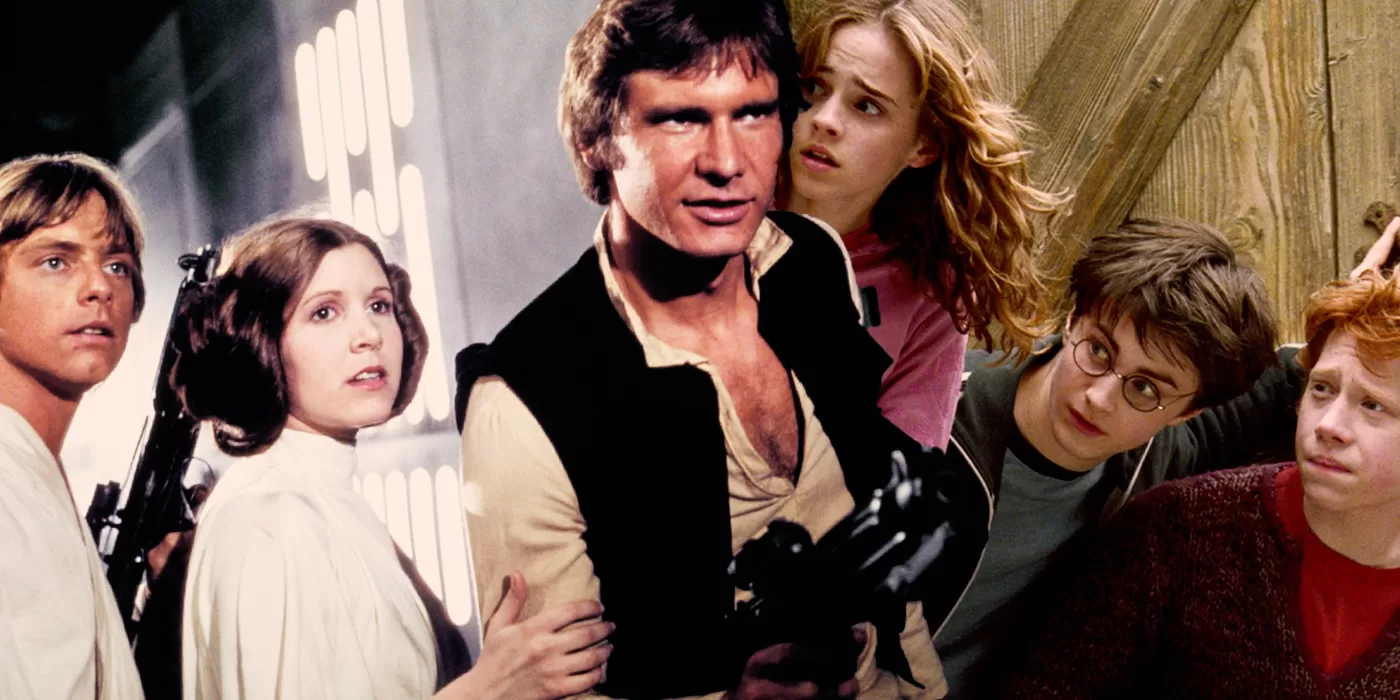The latest film in the Planet of the Apes franchise, Kingdom of the Planet of the Apes, brings audiences back to the dystopian world where intelligent apes overthrow the human race. It is the 10th film of the franchise, and the fourth film in the Planet of the Apes reboot series, following War for the Planet of the Apes. Directed by Wes Ball, this entry is set roughly 300 years after Caesar (Andy Serkis) brought his community to their new home. Different ape civilizations have advanced, while the human population has been significantly reduced, and those who remain live as feral beings.
Kingdom of the Planet of the Apes builds on the franchise legacy and provides a thought-provoking exploration of humans and apes co-existing as equals. The film follows Noa (Owen Teague), a chimpanzee of the Eagle Clan, who reluctantly teams up with a human woman, Mae (Freya Allan), to find the tyrannical ape leader, Proximus Caesar (Kevin Durand). How does this film compare to Rupert Wyatt and Matt Reeves‘ previous entries? Find out in our review.
‘Kingdom of the Planet of the Apes’ Doesn’t Monkey Around
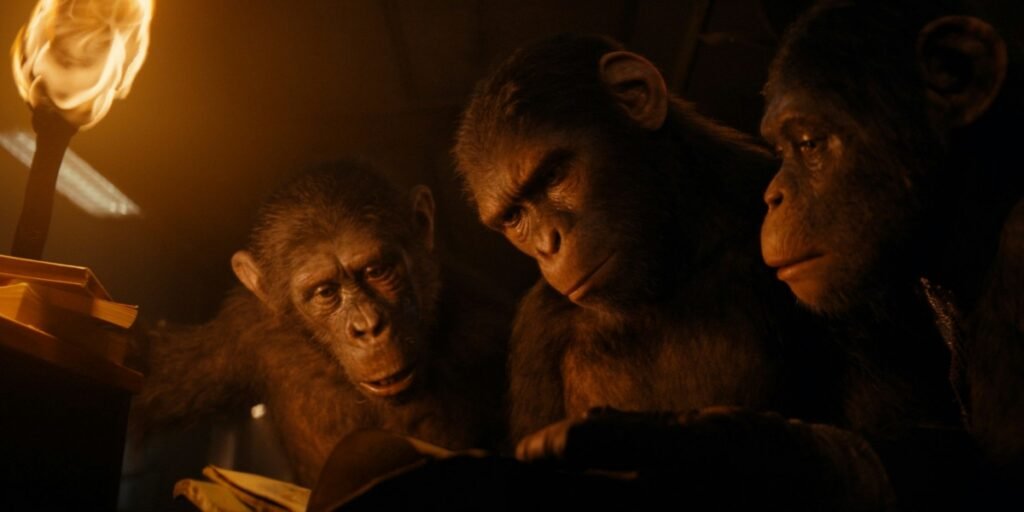
Considering how War for the Planet of the Apes ends on a satisfying note for Caesar’s story, how the narrative would proceed was up in the air. With the film set generations after the previous entry, the main characters of the prior trilogy are long gone, so introducing brand-new leads is a daunting task. Writer Josh Friedman impressively delves into philosophical and ethical ideals surrounding this new world where apes overpower humans.
If these highly advanced apes can speak, express emotions, and behave intelligently, what makes them lesser than humans? Should humans be treated as animals, considering how they have treated other species? These are just some questions Friedman challenges audiences to consider throughout the film.
The themes of power and societal hierarchies in Kingdom of the Planet of the Apes are skillfully woven together in this science-fiction story that feels very relatable to the world today. Unfortunately, the time to analyze these deep concepts results in moments of extended dialogue that may test the audience’s patience as some scenes drag on. The characters are flawed as they face moral dilemmas where they could be easily swayed.
Noa and Nova are naive characters who have to explore the world (and themselves) to better understand what the best possible future is for their species. Although Caesar is no longer around, his ideology is directly tied to the story. This exemplifies just how influential his methodology is, and how varied interpretations of his teachings can yield vastly different results.
The ‘Kingdom of the Planet of the Apes’ Cast Do an Ape-solutely Good Job
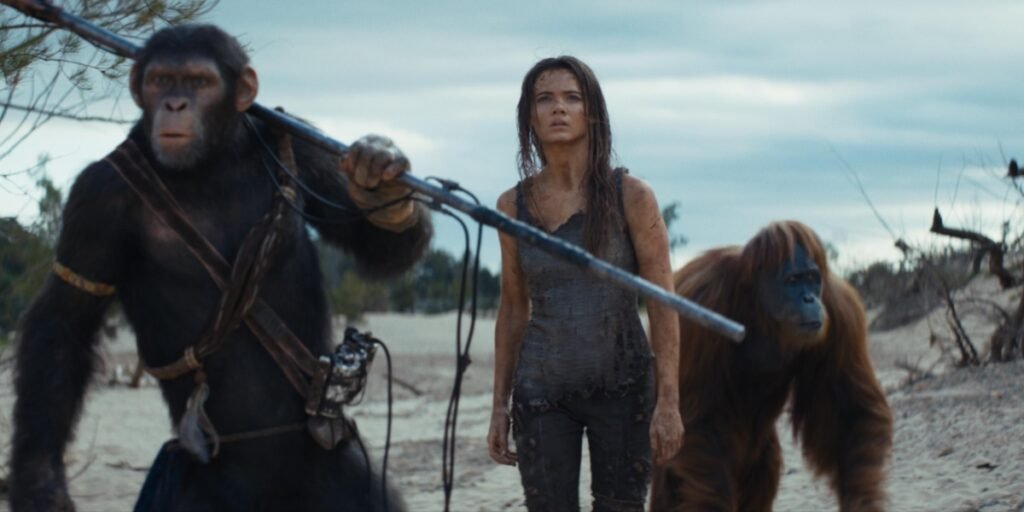
Following his supporting role in blockbuster films, It and It Chapter Two, Teague steps up as the new lead in the beloved Planet of the Apes franchise, filling big shoes left by Serkis. Noa may not be the tactician and leader Caesar was, but he is the heart and soul of the film. Despite being covered with motion capture effects, Teague displays impressive emotional depth and realism in his role.
Noa evolves as he learns more about the world and the history of apes and humans. Similar to her character in The Witcher, Allan’s Mae undergoes a journey of self-discovery as she interacts with Noa and other apes. While the relationship between Noa and Mae is a fascinating dynamic, their camaraderie is rushed to move the story along; Allan isn’t given enough to show off her range as an actress.
Durand’s Proximus is a threatening villain even with his limited screen time. Durand can shift from a reassuring whisper to an aggressive yell with ease. While Koba (Toby Kebbell) in Dawn of the Planet of the Apes is scarily unpredictable, his ideology isn’t the most convincing. Proximus won’t stand for any monkey business either, but his perception of Caesar’s teachings is what makes him most frightening.
A good villain believes they’re the hero of their own story. For Proximus, his distorted beliefs are a stark reflection of reality, showcasing how sacred ideologies can be misinterpreted to justify violence. Since the film is occupied with trying to balance Noa and Nova’s perspectives, Proximus’ arc doesn’t start until the halfway point of the story. This is unfortunate because it feels like there is more room to explore his character and how he became the way he is.
How Does ‘Kingdom of the Planet of the Apes’ Compare to the Previous Films?

Kingdom of the Planet of the Apes may not reach the same heights as its recent predecessors, but it serves as the beginning of a new chapter with immense potential. With stunning visuals and promising character development, the film sets the stage for a grand sequel. Even with its shortcomings, there’s a lot to love here for passionate Planet of the Apes fans — the foundation has been placed for a captivating and thrilling continuation of the series.
Kingdom of the Planet of the Apes releases in theaters May 10. Follow the Agents of Fandom socials for all the latest entertainment news and reviews.
'Kingdom of the Planet of the Apes' Review
'Kingdom of the Planet of the Apes' ReviewThe Good
- Stunning visuals and CGI make for an aesthetically pleasing watch.
- The film expertly dives into realistic themes through a sci-fi lens.
- 'Kingdom' doesn't run from the legacy of the previous trilogy.
The Bad
- Poor pacing makes some scenes draw out too long.
- Proximus Caesar doesn't get enough screen time.
- The film leans into obvious exposition more than it should.





